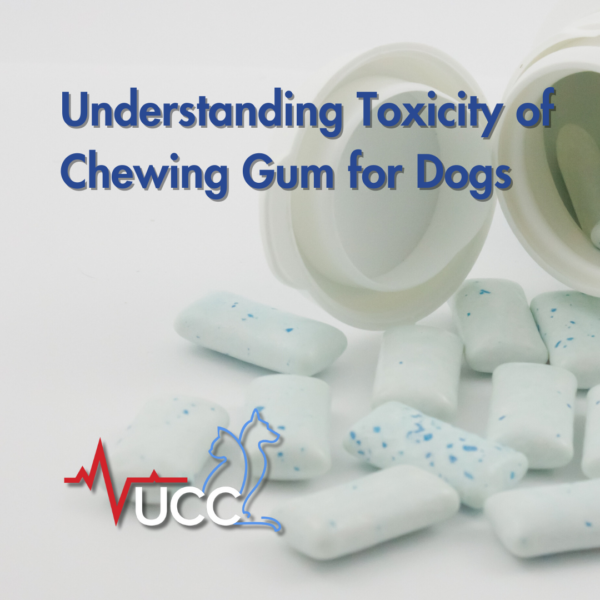Gum is a great way for us humans to freshen our breath, relieve anxiety and pass the time. But for our dogs, it can be a harmful toxin that can result in medical attention if ingested by our four-legged friends. 
Dogs are vulnerable to some ingredients in gum, most notably xylitol. It’s important to know that not all types of gum have this ingredient in the product. But if you are the parent of a pup, our experts at Veterinary Urgent Care Center wanted to give you some information about the ingredient and keep your pet safe while still keeping your habit!
Xylitol is a sugar alcohol commonly used as a sugar substitute in sugar-free gum, candies, and other products. While it’s safe for human consumption in moderate amounts, even small quantities of xylitol can be highly toxic to dogs.
When a dog ingests xylitol, it triggers a rapid release of insulin from the pancreas, leading to a sudden and severe drop in blood sugar levels (hypoglycemia). Symptoms of xylitol poisoning in dogs can include vomiting, weakness, lethargy, seizures, and even liver failure. In severe cases, xylitol toxicity can be fatal if not treated promptly.
It’s crucial for pet owners to carefully read the ingredients list on chewing gum packaging to determine if xylitol is present. Unfortunately, xylitol is often listed under various names, including “sugar alcohol” or “natural sweetener,” making it challenging to identify. Some common brands that use xylitol in their gum include certain flavors of Orbit, Trident, and Ice Breakers.
If you chew gum or store it in the house, please keep it out of places where your dog may get at the packaging. Be mindful of where you put the gum and also of where you throw it away (i.e. does your pet like to get into the garbage). If you know that your dog likes to explore and chew things, be mindful of your surroundings.
If you suspect your dog has ingested gum and notice the signs listed above, you should seek immediate care. First, you can call Poison Control directly and a medical professional will be able to assess how much toxin was ingested. If you are unsure, you should visit an urgent care center or visit the emergency department. Our hospitals are open 7 days a week and we offer urgent care services in Braintree, Plymouth, Easton, Saugus, Dedham and East Providence, RI. Visit veturgentcare.com to book online or view our hours before you walk-in!



